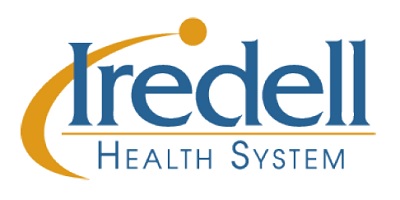
Special to Iredell Free News
Heartbeats can tell us a lot of things. They race when we get nervous or anxious. They bump against our chests when we exert energy. They leap into our throats when we sense danger.
What we sometimes do not recognize are the ways our heart responds to silent attackers.
Heart disease is the No. 1 killer of women, with many heart disease symptoms being hard to detect or even describe. Educating yourself on symptoms and risks can help you catch this silent killer before it’s too late.
As part of Iredell Health System’s Healthy Hearts virtual series, Tori Hudgins, a physician assistant with Iredell Health System’s Heart and Vascular Center, held a presentation last Thursday on women’s heart disease and the associated risks and symptoms.
“Heart disease causes one in three women’s deaths each year, but if we surveyed, only one in five women believe heart disease is her greatest health threat,” said Hudgins.
The most common types of heart diseases are: coronary artery disease, heart attacks, valvular heart disease, arrhythmias, congestive heart failure, and congenital heart disease. Each type has its own unique symptoms and risks.
Coronary Artery Disease
Coronary artery disease, commonly called “blockages,” happens when a woman’s cholesterol builds up and blood cannot flow through the heart’s arteries. Symptoms include chest pain and shortness of breath during activities, like carrying in the groceries or moving the trash can down the driveway. These symptoms typically subside with rest. Hudgins said women can reduce their risk by exercising, monitoring high blood pressure and blood sugar, and raising “good” cholesterol — known as HDL. Breaking a sweat, even something as simple as walking in your neighborhood, can raise your good cholesterol.
Heart Attack
So, how is a heart attack different from coronary artery disease? A heart attack occurs when an artery becomes 100 percent blocked and no blood is able to get through. Women’s heart attack symptoms can differ from men but typically include sudden chest pain, shortness of breath, nausea, and sweating.
“You can take 10 people that have a heart attack — they’re all going to feel these symptoms a little bit differently,” said Hudgins.
Hudgins urges individuals to take baby aspirin and call 911 when experiencing these symptoms.
Valvular Heart Disease
Valvular heart disease causes your heart valve to function incorrectly, making it either too stiff or too limp. When your valve is too limp, a “murmur,” or a leaking valve, can occur. You can have a murmur without a serious heart disease. A woman can even develop one during pregnancy from increased blood flow and extra stress on the heart.
Symptoms of valvular heart disease include unusual shortness of breath with activity, chest pain, dizziness, swelling in the belly and lower legs, and a cough when lying down.
Arrhythmias
Arrhythmias happen when your heartbeat jumps out of rhythm. According to Hudgins, arrhythmias often feel like your heart is “racing, jumping, or flipping.” Chest pain, shortness of breath, and swelling in the stomach or lower legs are also symptoms.
Congestive Heart Failure
Did you know there are two kinds of congestive heart failure? It can occur when your heart muscle is too thick and stiff, or too thin and weak. Uncontrolled high blood pressure can cause stiffness in your heart muscle, while heart attack damage or a bad virus can weaken your heart muscle.
Women with congestive heart failure may experience rapid weight gain, fluid in their stomach, persistent swelling in their ankles and legs, and a feeling of not being able to breathe while lying down. Hudgins explains that if you feel like you need to sleep in your recliner to be able to breathe, you may have congestive heart failure.
Congenital Heart Disease
An abnormality in the structure of the heart, women with congenital heart disease have often had this heart condition since birth. You may have heard someone with congenital heart disease say, “I have a hole in my heart.”
“Nine in 10 women have one or more risk factors for developing heart disease,” said Hudgins.
This makes it imperative for women to proactively fight against heart disease. Visit your doctor if you have a family history of heart disease or are experiencing any common heart disease symptoms.
LEARN MORE
Want to dive deeper? View Hudgins’ full presentation on the Iredell Health System YouTube channel, or visit www.iredellhealth.org/calendar to register for the next Healthy Hearts presentation.
About Iredell Health System
Iredell Health System includes Iredell Memorial Hospital; Iredell Home Health; Iredell Wound Care & Hyperbaric Center; Community and Corporate Wellness; Occupational Medicine; the Iredell Physician Network and more. Iredell Memorial Hospital is the largest and only nonprofit hospital in Iredell County. The comprehensive healthcare facility has 247 beds; more than 1,700 employees; and has 260 physicians representing various specialties. Centers of excellence include Women’s and Children’s; Cardiovascular; Cancer; Surgical Services and Wellness & Prevention. The mission of Iredell Health System is to inspire wellbeing. For a comprehensive list of services and programs, visit www.iredellhealth.org.



